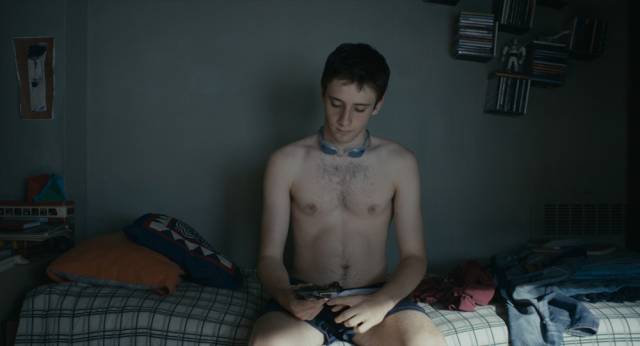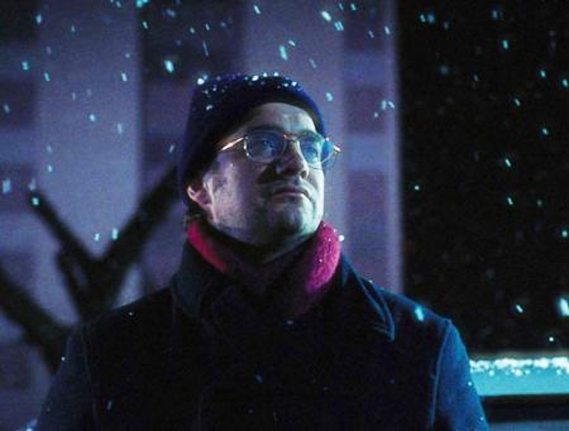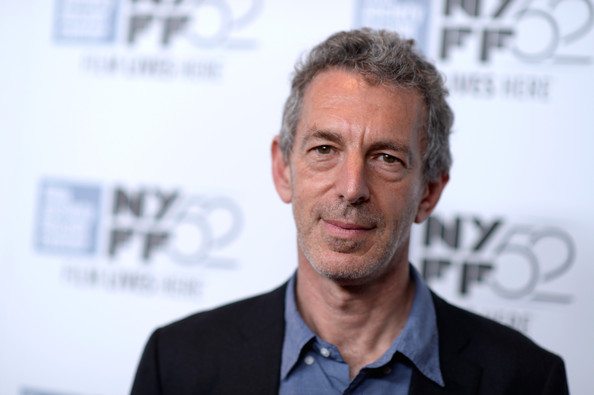

Martin Rejtman's Two Shots Fired opens in a nightclub where we see Mariano (Rafael Federman) dance the night away, only to arrive home the following morning, go for a quick swim, mow the lawn and then shoot himself twice with a gun he finds in the shed. He doesn’t die, but sets in motion a story that brims with deadpan humor and an almost mystical feeling. Rejtman is one of Argentina’s most accomplished filmmakers, constantly challenging audience expectations while experimenting with the medium. From his debut with Rapado to Silvia Pietro he has proven to be a peculiar observer of daily life, who is never afraid to single out the absurd customs that rule our society. His oeuvre is part of a retrospective at The Film Society of Lincoln Center called Sounds Like Music: The Films of Martin Rejtman. To celebrate the occasion we had the opportunity to talk to him.
Why did you let so much time pass between Copacabana and Two Shots Fired?
In between those projects I made a television movie called Elementary Training for Actors and I’m also a writer, my career is not exclusively being a filmmaker. People usually ask me why I take so many time in between feature lengths, but really movies are just another thing I do.
You mentioned in an interview that you thought Louis C.K. was making “small films”. Do you think of TV as the future of cinema?
No, I think we’re in a strange moment where we don’t really know where movies are going. There’s not a standard way of distributing films, people can watch them at home for instance, but there’s no universal way of storing them. DVDs are not being used much, and people are using hard drives to store films, but those can be deleted easily, similarly watching them online feels very volatile. I think we’re merely at the beginning of this new era, so I have no idea what the future will be like.
Blu-ray never really became too popular either.
Exactly, because Blu-rays came out at the same time people were starting to store everything in hard drives.
Two Shots Fired was the first film you’d shot digitally, did this change your process or was it just a change of format?
I just changed the format, at the beginning I was really afraid of digital, because digitally shot films had a very rough image, they were too defined, you could see the actors’ makeup, the clothes looked a little bit too ironed. We decided to use older lenses, we didn’t want a too defined definition (laughs), so we achieved a softer image that made me really happy. I did have the opportunity to shoot in film, but I decided to use digital because celluloid seemed too nostalgic.

Speaking of nostalgia, the very last scene in The Magic Gloves takes place in a nightclub, and the very first scene of Two Shots Fired also takes place in a nightclub. Are you leaving us clues about themes that unite all your fiction works?
I liked the idea of starting Shots where Gloves had ended because I feel you’re always talking about the same world in your films, or at least a very similar world. In fact when I wrote the screenplay for Two Shots Fired I was using ideas I hadn’t been able to use in The Magic Gloves, for instance Ezequiel, Mariano’s brother appeared in a Gloves draft, he was one of Alejandro’s neighbors. All of it is a grand continuous in my mind.
You also have people from different age groups interact in Two Shots Fired.
Yes, in my previous films I’d focused only on people of a certain age which wasn’t something I was doing consciously, but when I realized I was doing it, I knew I had to stop because otherwise I would have ended up with very old characters, so I decided to blend the different age groups. Which is also why instead of having a single protagonist, this one has three, the three family members, which also gave path to having more supporting characters and varied stories.
Mariano was inspired by a real person who had seen Rapado on many occasions.
Yes, at least that’s what they told me. I kept thinking about this story and used it as a starting point to write the screenplay.
In a certain way does Mariano represent the audiences who come see your films?
Not necessarily, I never thought about it like that. I was just interested in this man who survives shooting himself. I was interested in telling the story of someone who had been so close to death, and who survived.
Your first films had a faster editing, and after Copacabana they have become more meditative. Are you trying to find the perfect rhythm for your films?
The film’s rhythm only appears to me once the movie has been finished. It always ends up surprising me too! I plan ahead, write my screenplays carefully and try to have everyone respect what’s on the page, I can be very obsessive with having everything under control, but the one thing I can never control is the film’s rhythm. You only discover this during the editing process, there is nothing deliberate, we don’t try to make slow or fast films.
 Copacabana was a documentary in which you were able to find moments of comedy in daily life, you were able to recreate this in the screenplay of Two Shots Fired. Was this easy to write?
Copacabana was a documentary in which you were able to find moments of comedy in daily life, you were able to recreate this in the screenplay of Two Shots Fired. Was this easy to write?
I guess you’re always trying to find interesting elements. Copacabana shows that when comedy happens in real life, it can be one of the most interesting things in the world, it always reveals a layer you weren't aware of. We couldn’t plan this in Copacabana but we did in Two Shots Fired.
Was it hard to write this into the film?
Not at all, what’s difficult for me is finding the ending. I’m a very slow writer, so discovering where I want to take my story always takes me some time. But writing each scene, even funny ones, comes easy to me.
You went to school in NYU and now you’re getting your own retrospective at The Film Society of Lincoln Center. Would you say you’re ending a cycle?
You’re right, I hadn’t thought about this. I did think it was interesting when they showed Two Shots Fired at the New York Film Festival, because I remembered being a student and going to see movies at the festival, and I never imagined they’d show any of my films. And now this is quite similar, but I don’t think I’ve had enough time to process it. I’ve just arrived from a busy trip in Seoul, so I feel I haven’t assimilated this yet (laughs)
What’s next for you?
I have a couple of ideas and am working on a screenplay that will be more similar to my other films. I also want to try shooting a film faster. Over the last few days I’ve been thinking precisely about what to do next, but I’m not sure yet. We shall see.
Sounds Like Music: The Films of Martin Rejtman plays at The Film Society of Lincoln Center through May 19.